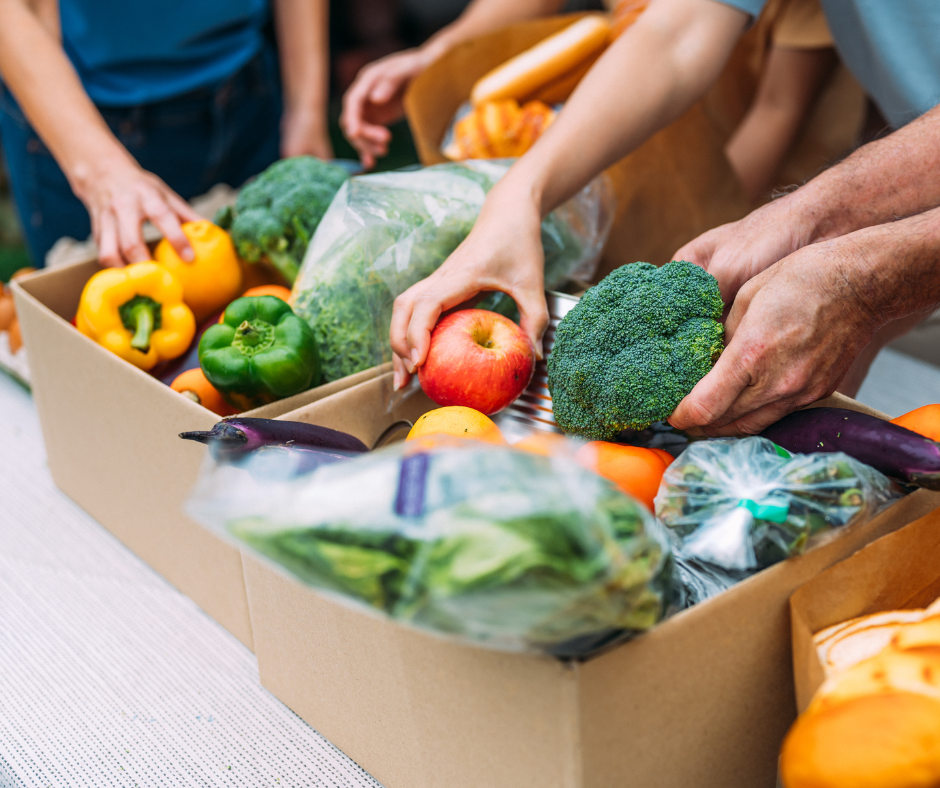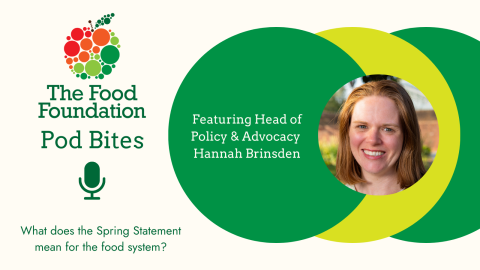31 March 2025
Cutting benefits will worsen the vicious cycle between food insecurity and poor mental health

New Government data reveals already high levels of food insecurity amongst the families that will be most affected by the Government’s welfare reforms, reports Shona Goudie and Joss MacDonald.
New Government data released last week shows unacceptable numbers of people in our country are suffering from food insecurity, even before the brutal welfare cuts announced in the Spring Statement.
The Family Resources Survey, which publishes data on household food insecurity from the previous financial year (2023-4) shows that even before the recently announced cuts come into effect:
- 40% of households in receipt of Universal Credit are food insecure
- 31% of households in receipt of Personal Independent Payments (PIP) (daily living component) and 29% on PIP (mobility support) and are food insecure
- 31% of households in receipt of Carers Allowance are food insecure
- The number of children living in poverty in the UK has reached a new record high since measurement began in 2002 - 4.45 million children are now estimated to be in households in relative low income, after housing costs, up from 4.33m the year before.
In the Family Resource Survey, food insecurity refers to family members who report behaviours that shouldn’t be seen in the UK today - like having to skip meals, eat less when they are hungry, worry about running out of food because they can’t afford to buy more, losing weight because they don’t have enough to eat, or going for a whole day without eating because they can’t didn’t have enough money for food.
Cutting benefits will worsen the vicious cycle between food insecurity and poor mental health:
Just over 370,000 people will lose their PIP – many of whom will be people with a mental health condition.
There are a number of ways in which not having reliable access to food can negatively impact on mental health: a Food Foundation survey conducted last year founded that a high proportion of people facing food insecurity reported that not having reliable access to food makes them feel anxious (72.0%) or depressed (66.5%), makes them worried about the effects on their physical health (70.8%) and mental health (66.7%), and also resulted in levels of heightened stress (66.2%).
Cutting benefits for people with mental ill-health creates the risk of worsening their mental health by increasing their risk of food insecurity.
Prevention, through tackling modifiable risk factors, such as food insecurity, is likely to be a much more effective in boosting the workforce than removing benefits from struggling people.
Glory, our Food Ambassador from Glasgow, said: "There is an interplay between poor mental health and food insecurity.
"Constant worry about the next meal due to no income can lead to mental health issues... I am not used to eating breakfast due to the uncountable times I have had to skip it just so that my child can have one.
"The burden of financial insecurity on wellbeing cannot be over emphasised."
Similarly to the new Government data, The Food Foundation’s Food Insecurity Tracker has shown that households with a disabled adult have been consistently substantially more likely to experience food insecurity over the past five years through the covid pandemic and cost of living crisis.
The latest findings reveal that 34.6% of households with an adult limited a lot by disability are food insecure compared with 9.9% who don’t have a disability.
These disproportionate rates are in large part a result of income inequalities experienced by disabled people who are less likely to be employed and on average are paid lower salaries.
Any reduction in the financial support provided through disability benefits will therefore be likely to have a devastating impact on deepening food insecurity for those already struggling and pull even more into hardship.
The Government should prioritise policies that address the root causes of poverty and prevent ill-health:
The Family Resources Survey records food insecurity from the previous financial year – before the current Labour Government came into power. Yet this latest announcement of welfare cuts suggests that this Government is moving further away from achieving their commitments to raise the healthiest generation of children in our history and embed a greater focus on prevention when it comes to our health.
Looking towards DEFRA’s Food Strategy and the Child Poverty Strategy later this year, it’s increasingly urgent that the Government strengthen nutritional safety nets like Free School Meals and the Healthy Start Scheme, and make sure that work and benefits cover the cost of a nutritious food, to protect the most vulnerable in society and support a healthier and more productive future.
Anna Taylor OBE, Executive Director of The Food Foundation, said: "There is now an even greater imperative for the Government’s forthcoming Child Poverty Strategy to not only negate the negative effects of the Spring Statement on food insecurity, but also offer a positive vision for how the current Government will finish its term of office with fewer in poverty and fewer going hungry, than when they were first elected last July."

Shona joined The Food Foundation as a Project Officer in 2019 and has worked on research, policy and advocacy across a range of projects over that time including leading our food insecurity surveys and flagship annual Broken Plate reports. She now works across the charity's policy portfolio including our children's food campaigns, food insecurity and food environments. She is a Registered Associate Nutritionist with a background in clinical nutrition who worked in dietetic departments in NHS hospitals before joining The Food Foundation.

Joss joined the Food Foundation in June 2023 as our Public Affairs Lead, overseeing engagement with parliamentarians. He has worked for a range of causes in the past including in the disability and health sectors, as well as in human rights law. Prior to this he worked for many years in the House of Commons. He has also studied ceramics and has spent time working as a potter. Joss’ interest in food systems began young, growing up overlooking a farm in Hampshire. He is now the proud owner of an inner city allotment and involved in the management of a community garden on the council estate where he lives.





